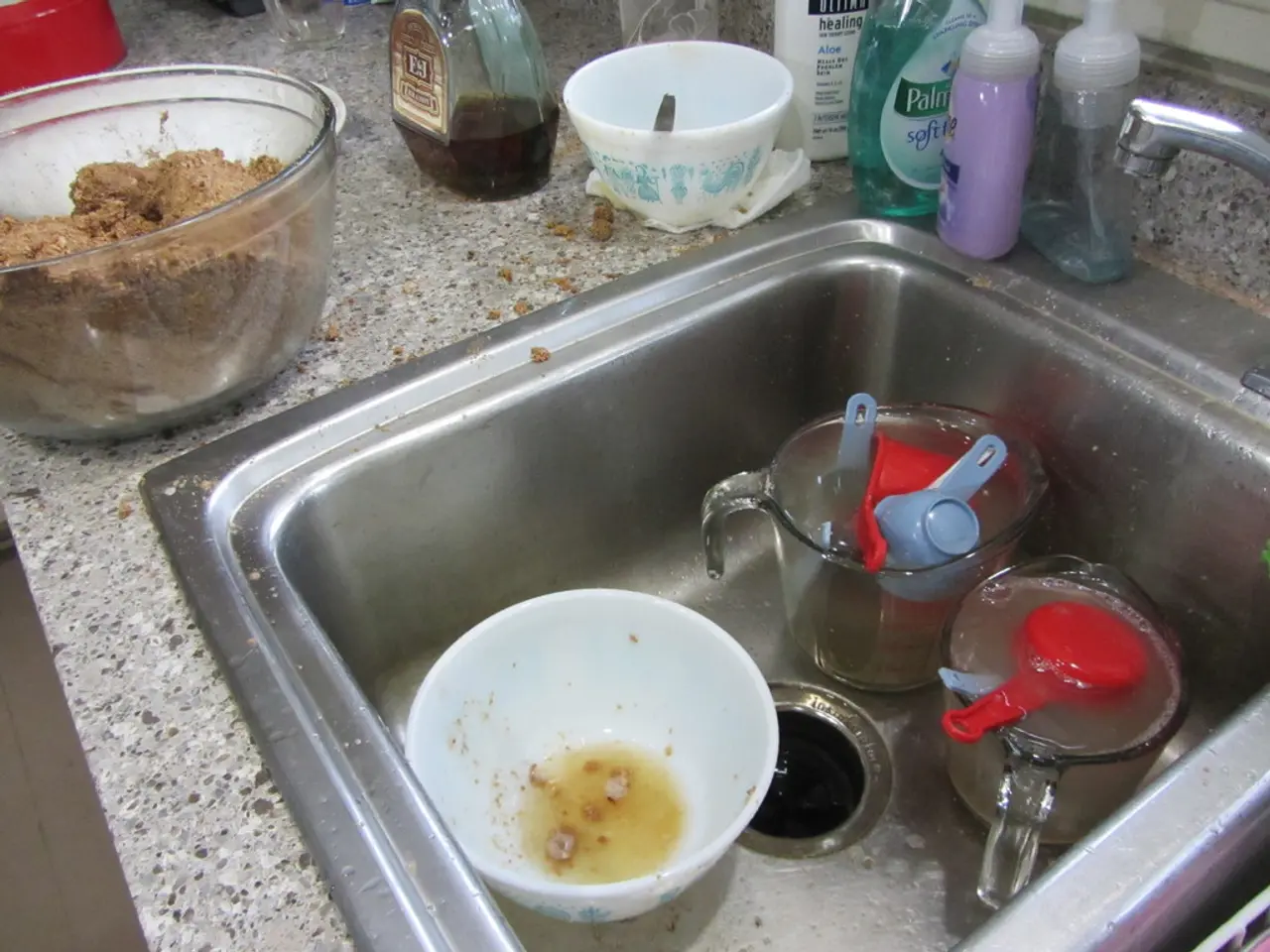Effect of stress on cancer patients' immune response system
In the battle against cancer, stress can often be a formidable adversary. Prolonged stress can negatively impact the immune system of cancer patients, making it harder for their bodies to fight the disease effectively.
Chronic stress, or long-term stress from ongoing challenges, has been found to drive a multifaceted immunosuppressive environment in cancer patients. This occurs through both direct modulation of immune cells and indirect promotion of tumor immune evasion mechanisms, ultimately facilitating tumor growth and progression.
One way chronic stress affects cancer patients is by suppressing the production of white blood cells, essential for fighting infections. This weakens the body's ability to combat not only the cancer itself but also any potential infections that may arise during treatment.
Chronic stress can also influence the disease's progression by promoting angiogenesis, the formation of new blood vessels that supply nutrients to tumors. This allows tumors to grow and spread more rapidly, increasing the risk of metastasis.
Research shows that the immune system of cancer patients is particularly vulnerable to the adverse effects of stress. Chronic stress triggers a biological response in the body, activating the hypothalamic-pituitary-adrenal (HPA) axis, resulting in the release of stress hormones like cortisol and adrenaline. Over time, these hormones can have detrimental effects on the immune system.
In the tumor microenvironment, chronic stress can lead to immune evasion by tumors, altered immune cell interactions, dendritic cell dysfunction, reduced lymphocyte populations and function, increased pro-inflammatory cytokines, and impaired immune defenses. All of these factors contribute to a weakened immune response against cancer cells.
However, there are ways for cancer patients to manage their stress levels and support their immune systems. Building a strong support network of family, friends, and healthcare providers can help patients feel less isolated. Quality sleep is essential for immune system recovery and stress reduction. Deep breathing techniques and mindfulness meditation can lower cortisol levels and calm the nervous system.
Light exercises, such as walking or yoga, can lower stress levels and enhance immunity. A diet rich in fruits, vegetables, and whole grains supports immune function. Acupuncture and massage therapy can also help minimize stress and improve treatment side effects. Joining therapy groups or support networks provides emotional comfort and shared experiences.
For cancer patients, the immune system is crucial not just during treatment but also in the fight against cancer and survival. By managing stress levels, cancer patients can give their immune systems the best chance to fight the disease effectively.
References:
[1] Detailed molecular and cellular insights from a 2025 study analyzing single-cell RNA sequencing data from the tumor microenvironment under stress conditions. [2] Findings from reviews on pro-inflammatory and glucocorticoid-mediated effects of stress in cancer. [3] Evidence linking stress to HPV persistence and cervical cancer risk.
- Chronic stress can exacerbate health challenges in cancer patients, creating a complex immunosuppressive environment that supports tumor growth and progression.
- The immune system of cancer patients is susceptible to the damaging effects of prolonged stress, as chronic stress weakens the production of white blood cells and compromises the body's defense against infections.
- In the fight against cancer, mental health plays a vital role as chronic stress triggers a biological response that activates the HPA axis, leading to cortisol and adrenaline release, corrosive to the immune system over time.
- Within the tumor microenvironment, chronic stress can lead to immune evasion by tumors, altered immune cell interactions, dendritic cell dysfunction, reduced lymphocyte populations and function, and increased pro-inflammatory cytokines; all factors contributing to weakened immune responses against cancer cells.
- Managing stress levels is crucial for cancer patients to support their immune systems during the fight against cancer and beyond.effective treatment.
- To combat stress, cancer patients can engage in light exercises like walking or yoga, mindfulness meditation, build strong support networks, maintain a healthy diet rich in fruits, vegetables, and whole grains, and explore alternative therapies like acupuncture and massage.
- The interplay between stress, mental health, and cancer is extensively studied, with research sources like single-cell RNA sequencing data, reviews on pro-inflammatory and glucocorticoid-mediated effects of stress, and studies linking stress to HPV persistence and cervical cancer risk.
- As chronic diseases like cancer become more prevalent, the importance of maintaining a healthy lifestyle, adhering to disease-specific diets, practicing supplementary stress management techniques, and engaging in medical care focused on health-and-wellness and mental-health will grow increasingly significant for cancer patients and survivors alike.




